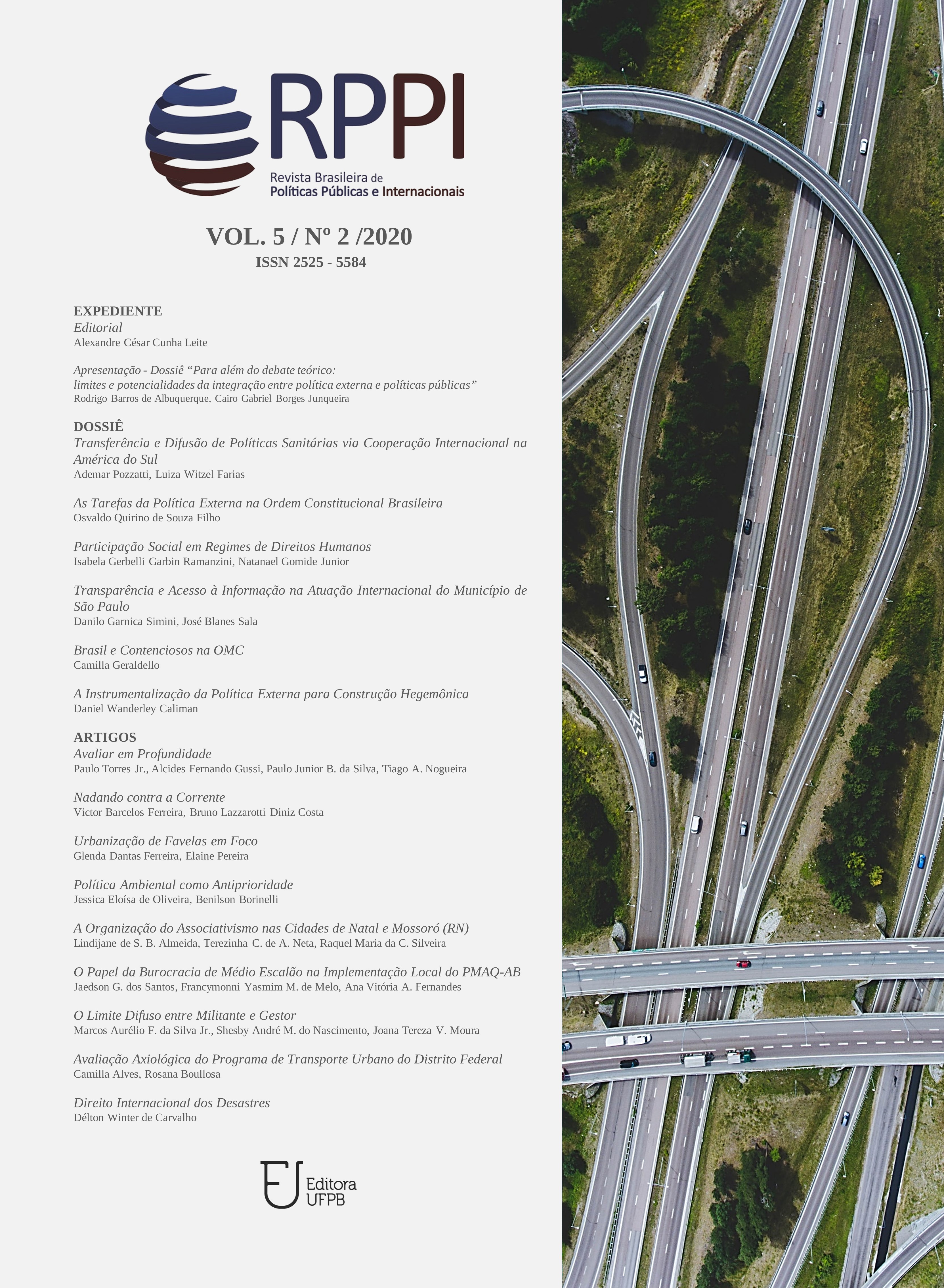Axiological evaluation of the Urban Transport Program of the Federal District
Exploring the public of accessibility
DOI:
https://doi.org/10.22478/ufpb.2525-5584.2020v5n2.53442Keywords:
public policy evaluation;, accessibility, public problemAbstract
This article evaluatively discusses accessibility as an important dimension of urban mobility, considering it as a public problem (Dewey, 1927; Blumer, 1971), based on a case study of its quality for people with physical disabilities, within the scope of the Federal District Urban Transport Program, with regard to road e subway transport. From the method's point of view, it was an axiological evaluation, based on values (Fischer, 2016; Boullosa, 2017; 2019), for having sought to reveal the matrix of values involved in the process of providing and using such services. Context analysis, semi-structured and structured interviews (questionnaire type) were used, whose findings were treated based on the similitude analysis (with the aid of the IramuteQ software) and descriptive statistics. As a result or evaluative synthesis, there was a high incongruity and disagreements between the values present in the perceptions of the different actors, which seems to be strongly related to the management model “transversal response, without coordination” of accessibility for people with physical disabilities.
Downloads
Downloads
Published
Issue
Section
License
Autores que publicam nesta revista concordam com os seguintes termos:- Autores mantém os direitos autorais e concedem à revista o direito de primeira publicação, com o trabalho simultaneamente licenciado sob a Licença Creative Commons Attribution que permite o compartilhamento do trabalho com reconhecimento da autoria e publicação inicial nesta revista.
- Autores têm autorização para assumir contratos adicionais separadamente, para distribuição não-exclusiva da versão do trabalho publicada nesta revista (ex.: publicar em repositório institucional ou como capítulo de livro), com reconhecimento de autoria e publicação inicial nesta revista.
- Autores têm permissão e são estimulados a publicar e distribuir seu trabalho online (ex.: em repositórios institucionais ou na sua página pessoal) a qualquer ponto antes ou durante o processo editorial, já que isso pode gerar alterações produtivas, bem como aumentar o impacto e a citação do trabalho publicado (Veja O Efeito do Acesso Livre).




_.jpg)






.png)


.jpg)
_.png)
